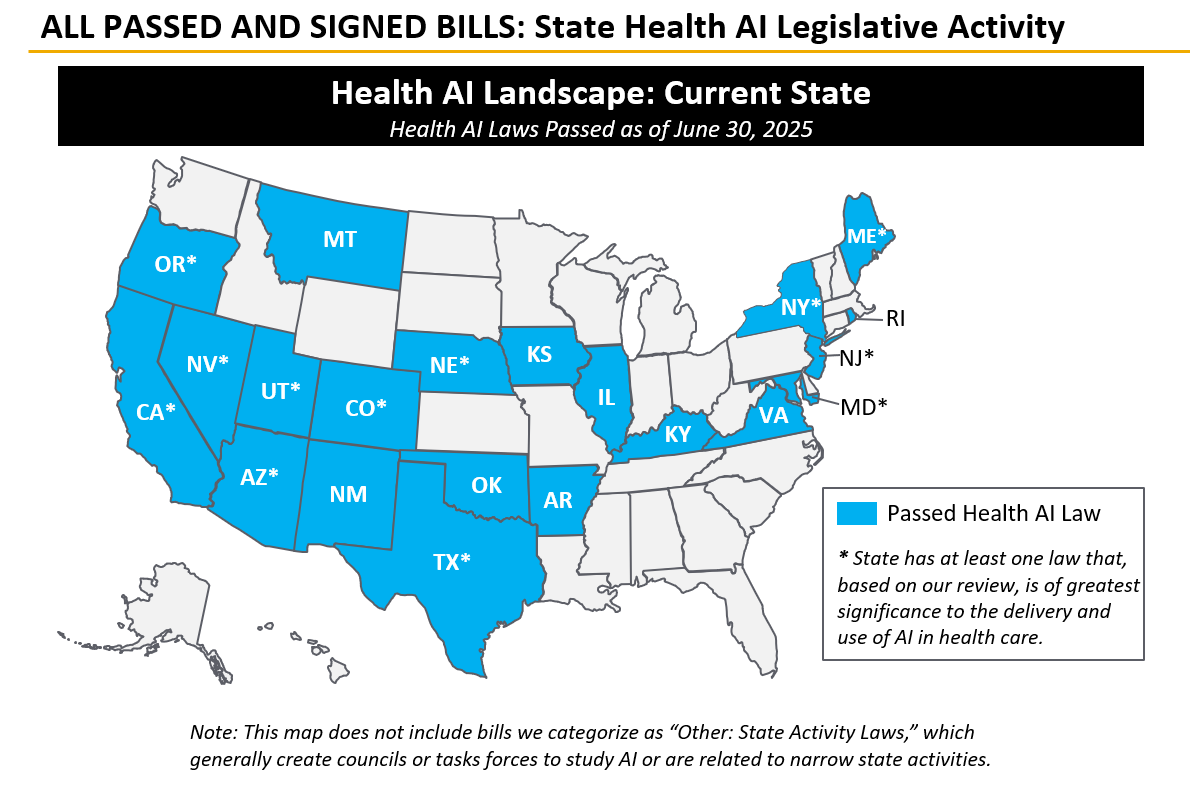Q2 AI Policies: A Comprehensive Tracker to Help You Prepare
For questions on AI policy in health care, please reach out to or . For a comprehensive overview of the policies and their implications, click .
Activity on has been a nationwide phenomenon during the 2025 legislative session:
- 46 states introduced health care AI bills
- 17 states signed 27 health care AI bills into law
- Over 250 total health care AI bills were introduced across the country
The passed laws focused on three main areas:
- Use of AI-Enabled Chatbots—as chatbots are introduced across health care to improve efficiency, enhance patient engagement, and expand access, state legislators are concerned that AI chatbots may misrepresent themselves as humans, produce harmful or inaccurate responses, or not reliably detect crises.
- Payor Use of AI—laws that passed focused on prohibiting the sole use of AI for denials of care or prior authorization and either requiring physician review of decisions generated by AI or prohibiting payors from replacing physician/peer review of medical appropriateness with an AI tool.
- AI in Clinical Care—states have sought to place guardrails on the use of AI to protect both patients and providers; this session, states focused on the use of AI in clinical delivery, what provider oversight should be required when using AI tools in clinical decision-making, and how providers should communicate the use of AI to patients.
Our provides details on these areas and how you can prepare.

To date, no federal bills have been introduced. The language in H.R. 1 that would have barred state or local governments from enforcing laws or regulations was stricken before the bill was signed into law.
Click for a comprehensive overview; a detailed analysis of AI policy is available to subscribers.
